Roz Savage's Blog, page 23
June 7, 2018
Yin, Yang, and Jung
Many, many years ago – in 1985 in fact – I took Economics A-level. I had a lovely and extremely plump teacher called Mrs William-Powlett, who had a particular way of popping the “p” in “perfect competition” that made it sound, indeed, perfect.
I didn’t have a particularly inquisitive mind back then, so it never occurred to me to question whether the underlying assumptions – of rational agents, in possession of perfect information, operating in a market where the invisible hand would ensure that resources were allocated in a fair and just way. It had been a long time since the Wall Street Crash of 1929 (the year my father was born and therefore, by a teenager’s definition, an inconceivably long time ago). And it would be a long time before the crash of 2008. The world seemed safe and secure and stable.
Now, of course, it has become very apparent that the world is very different. Our reality – economic, environmental, sociological, political – no longer represents the same safety, security, stability, and steady march towards a better future that we used to imagine. Could it be that what dear old Mrs William-Powlett was teaching was not necessarily so?
As you may gather, I’m still joyfully geeking out on complementary currencies, and am currently reading The Mystery of Money, by the man who designed the Euro, Bernard Lietaer. I very much appreciate his insights, and how he weaves together history, mythology, sociology, psychology, and economics. I don’t believe the book is publicly available – I’m reading it as a pdf – but I believe that you can request a copy from the author, via his website.
As you might guess from the title of this blog post, he is particularly examining money through the lens of Jungian psychology, with its emphasis on the archetypes that guide our thinking. Jung himself wrote:
“Archetypes are to the soul what instincts are to the body.”
(I was rather surprised to read this at first, but the more I thought about it, the more it started to make sense. As soon as we’re born, we start to learn how to fit in with the society that we find ourselves in, as our parents learned before them, and theirs before them. And human societies are shaped by certain narratives about what is “good” and what is “bad” behaviour. Myths are products of those same societies and those same narratives. And underpinning all of these narratives – mythical and societal – are the same standard cast of characters, such as the mother, king/queen, priestess, magician, lover, warrior, etc.)
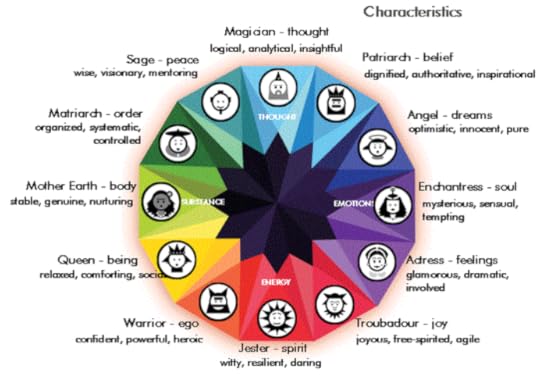 Lietaer’s main contention is that a lot of the trouble that we have with money – gross inequality of distribution, booms and busts, metrics that encourage exploitation rather than preservation of people and nature – are caused by the absence of the Great Mother archetype from our money systems. And the problem that arises is that when you suppress an archetype it doesn’t just go away. You end up with its shadows instead.
Lietaer’s main contention is that a lot of the trouble that we have with money – gross inequality of distribution, booms and busts, metrics that encourage exploitation rather than preservation of people and nature – are caused by the absence of the Great Mother archetype from our money systems. And the problem that arises is that when you suppress an archetype it doesn’t just go away. You end up with its shadows instead.
The shadow sides of the Warrior, for example, are sadism and masochism. The shadows of the Magician are hyper-rationality and indiscrimination. The shadows of the Lover are addiction and impotence. The shadows of the King/Queen are tyrant and abdicator.
And the shadows of the Great Mother are greed and scarcity.
Now is this starting to make sense? Do you see how the archetype represents what Aristotle would have called the Golden Mean, or the highest form, where there is balance? And how the shadows represent having too much, or too little?
 Gordon Gekko
Gordon GekkoSo now back to money and the mother archetype. When you look at our financial systems, do you see the nurturing, abundant, loving influence of the Great Mother? Or do you see greed and scarcity? I know what I see. Gordon Gekko, who you may recall was played by Michael Douglas in the movie Wall Street, admitted as much himself, quoted in 1987 by the Wall Street Journal: “the point is, ladies and gentlemen, that greed, for lack of a better word, is good. Greed is right. Greed works.”
Except when it doesn’t. And as our world has become too yang and not enough yin, we need to move out of greed/scarcity and back into healthy balance.
Lietaer tracks the history of the repression of the Great Mother archetype (and correspondingly her yin energy) over the centuries since the third millennium BC, by the Mesopotamians, the Greeks (Aristotle wrote, “For the female is, as it were, a mutilated male”), the religious scriptures of Judaism and Christianity, and the catastrophic witch hunts that were responsible for up to 100,000 executions, mostly by burning, between 1450 and 1750. (What Lietaer says dovetails neatly with Riane Eisler’s book The Chalice and the Blade – which I wrote about earlier this year.)
Lietaer is not saying that yang currency is bad – just that it needs to be in balance with yin. For some purposes, a yang currency is more appropriate. But he notes that, historically, whenever local yin currencies have complemented the dominant yang currency, they had the four following characteristics:
They led to remarkable economic well-being for the ordinary population;
They spontaneously induced investment patterns with unusually long-term perspectives (better for the environment);
They have characteristically appeared in societies only when the feminine archetype was honored, an admittedly rare occurrence in Western history;
They were the precursors of a contemporary local currency movement that could become a key tool to make possible Sustainable Abundance in our own lifetimes.
All sounds good to me! More on this next week.
“When male and female combine, all things achieve harmony.”
— Lao Tzu
Other Stuff:
Speaking of money, huge thanks to all of you who have contributed to the startup costs of The Sisters and/or signed up for membership after this announcement in last week’s blog. Autumn, Maureen, Terri, David, Audrey, Kathryn, Melinda, CJ, Eric, Canon, Rosalind, Meredith, John, Erica, James, Kath, Jacqueline, Giselle, Mariya, Anja, Nicola, Jo – may you be forever blessed. More news about The Sisters coming soon.
 With John Bradley, aka Samwell Tarley
With John Bradley, aka Samwell TarleyI can’t believe I forgot to mention I met some of the cast members of Game of Thrones! Obviously been just too much excitement going on recently. I was at Buckingham Palace on 24th May to present Gold Awards, and was delighted to meet the actors who play Samwell Tarley (cheer!) and Walder Frey (boo, hiss!). Some of my long-time readers might recall that I listened to several of the Songs of Ice and Fire series while I was rowing the Pacific, and completely fell in love with the characters – not least because they were mostly having a worse time than I was. And although I’m normally not into TV shows with lots of violence, I’ve absolutely adored the TV version. So meeting these guys was definitely the icing on the cake of a fabulous day at the Palace.
This week I watched Normal is Over, which I highly recommend. It’s a multi-award-winning documentary about humanity’s wisest responses to climate change, species extinction, resource depletion and the widening gap between the rich and poor. It takes a hard look at the financial and economical paradigm underlying our planetary problems, while offering various solutions to reverse the path of global decline. It includes interviews with various key figures, including Charles Eisenstein, Naomi Oreskes, Paul Gilding, Lester Brown…. And Bernard Lietaer. One of my favourite lines in the film comes from poet Ian McCallum: “Wilderness is not a place, but a pattern of soul”.
Hurrah! We now have a new speaker showreel, showing me in action in various places. Check it out on YouTube or on my speaker page.
And finally, if you want to indulge in some righteous indignation about how women/the feminine has been disrespected over the course of the centuries, feel free to fume over these quotations, illustrating the repression of the feminine, borrowed from The Mystery of Money:
“Such is the stupidity of woman’s character that it is incumbent upon her, in every particular, to distrust herself and to obey her husband.” Confucius (5th century BC)
“Sin began with a woman and thanks to her we all must die.” Ecclesiasticus 25:24 (2d century BC)
“Women are the gate of the devil, the patron of wickedness, the sting of the serpent.” St Gerome (5th century AD)
“Women are your fields: go, then, into your fields whence you please.” Koran (7th century AD)
“Men have broad shoulders and large chests and small narrow hips and are more understanding than women, who have but small and narrow chests and broad hips; to the end they should remain at home, sit still, keep house and bear and bring up children.” Martin Luther (16th century)
“Husband and wife are one person in the law; that is, the very being or legal existence of the woman is suspended during the marriage.” William Blackstone (18th century)
“The National Socialist movement is by nature a masculine movement… The outstanding and highest calling of women is always that of wife and mother.” Joseph Goebbels (20th century).
And please, only watch the following Harry Enfield/Paul Whitehouse spoof if you have a really good sense of humour and aren’t easily offended!
May 31, 2018
Announcing The Sisters
“Life is too short for second rate ambitions.”
– Ranulph Fiennes, explorer
There’s a blessing, and the curse, of having achieved something like rowing alone across three oceans. Once I discovered that I was capable of so much more than I had previously imagined, I now know that if I’m not at least a little scared of what I’m about to do, then I’m not aiming high enough.
So here we go.
I have an audacious vision for changing the world by harnessing the intelligence and strength of the world’s women and directing their actions toward change. And I need your help.
We all want a world of sustainability, of peace, and of thriving – not just for the few, but for the many. We want partnership and collaboration, not domination and oppression. We want equality, across genders, orientations, countries, ethnicities, income groups, and belief systems. We want connection: to community, to nature, and to our own best selves.
I have an idea how I can make this happen.
 I’d like to start with the female half of humanity, because we need to see greater prominence given to the feminine qualities of cooperation, nurturing, and intuition, to provide balance for the important, but currently over-prominent, masculine qualities of ambition, achievement, and competitiveness. Ultimately we need to bring the masculine and feminine back into balance on an individual level as well as a global level, but first, as women, we need to find the courage to stand up and speak up, and to be what we really are, rather than what society tells us to be.
I’d like to start with the female half of humanity, because we need to see greater prominence given to the feminine qualities of cooperation, nurturing, and intuition, to provide balance for the important, but currently over-prominent, masculine qualities of ambition, achievement, and competitiveness. Ultimately we need to bring the masculine and feminine back into balance on an individual level as well as a global level, but first, as women, we need to find the courage to stand up and speak up, and to be what we really are, rather than what society tells us to be.
By focusing on women, I intend to bring balance and equality to conversations many women don’t know how to enter, adding their intelligence and perspective in ways all in the world can benefit from. As we start, The Sisters will be for women only. I look forward to finding ways to involve people of all genders in our vision and action as time goes on.
This is not #metoo, although it has been partly catalysed by that. #Metoo has been a venting of frustration and fury, not just from this generation, but on behalf of millennia of abused women. This has been a necessary step, but we mustn’t stay in that negativity for too long. One of the conclusions I’ve drawn from fifteen years focusing on environmental issues is that positive visions of what we do want are much more inspiring than being anti-whatever. So that is what this women’s network is about – to use the words of Charles Eisenstein, to envision the more beautiful world our hearts know is possible.
 We’re at a point in time where a lot of assumptions are being challenged. The systems that have got us to here won’t get us to there. When we look at the current structures of economics, governance, agriculture, energy, justice, education, media and health, we can see that they are failing to serve many in the way they should be served. We can do better than this. We have to do better than this. And women have a key role to play in designing this new iteration of civilisation.
We’re at a point in time where a lot of assumptions are being challenged. The systems that have got us to here won’t get us to there. When we look at the current structures of economics, governance, agriculture, energy, justice, education, media and health, we can see that they are failing to serve many in the way they should be served. We can do better than this. We have to do better than this. And women have a key role to play in designing this new iteration of civilisation.
So what does that look like?
In essence, The Sisters is creating the infrastructure that connects women from around the world, inspires and enables the formation of project-based teams, and directs resources into those teams so they can make the world a better place. We will share stories of transformation via our website, which will serve both to inspire and to catalyse change in other communities. We will share resources, combining into project-based teams to draw on the collective wisdom, skills and talents of the whole. We will create a central pool of funds, both conventional and alternative, to fund our projects.
There are three main aspects to our activities:
The Inner Journey: we unleash our creativity and leadership to become powerful agents of change
The Shared Journey: we share resources, ideas, skills, talents and contacts to create projects with impact
The Outer Journey: we stand shoulder to shoulder to advocate for peace, sustainability, and unity
As one of our core values is collaboration, not competition, we will be reaching out to existing women’s networks to weave connections around the world. The whole will become greater than the sum of its parts in a synergistic web of co-creation.
 As I embark on this journey, there are many parallels with rowing across oceans. The vision of the destination is clear. I’m aware that the voyage could well take longer than expected, and face unexpected diversions, even setbacks. But I know that with determination, patience, and tenacity, most things are possible. I feel very called to do this work, and I can think of no better way to take the skills and the network that ocean rowing has brought me, and putting those assets in service to the greater good.
As I embark on this journey, there are many parallels with rowing across oceans. The vision of the destination is clear. I’m aware that the voyage could well take longer than expected, and face unexpected diversions, even setbacks. But I know that with determination, patience, and tenacity, most things are possible. I feel very called to do this work, and I can think of no better way to take the skills and the network that ocean rowing has brought me, and putting those assets in service to the greater good.
I’d like to invite you to join me on this journey. Although membership of The Sisters is currently only open to individuals who identify as female, anybody of any gender is welcome to support our work. We’re looking for funds to get our website up and running and to hire a core team to arrange a series of national launches around the world and to forge partnerships with existing organisations.
Here’s how you can help – be you male, female, or other – in one or more of the following ways:
1. Subscribe to support us on a monthly basis. In case you’re wondering, the different levels are named after the seven sisters of the Pleiades constellation. If you’d like to subscribe at a level not specified, please email me. A subscription automatically grants you membership of The Sisters (if you’re female), or honorary associate membership (if you’re male).
Merope : $1.00 USD – monthlyCelaeno : $3.00 USD – monthlyAsterope : $5.00 USD – monthlyTaygete : $10.00 USD – monthlyAlcyone : $20.00 USD – monthlyElectra : $50.00 USD – monthlyMaia : $100.00 USD – monthly

2. Make a one-off donation. If you donate $500 or more, you will be listed on The Sisters website as a Prime Mover, and will have our neverending gratitude.

3. Spread the word on social media, e.g. “Want to make the world a better place? Support The Sisters! I did. https://www.rozsavage.com/announcing-...”.
4. Sign up for The Sisters newsletter to get updates as we prepare to launch.
5. If you are in an existing women’s network that you feel would be well aligned with the goals of The Sisters, please let me know.
Thank you so much for your support in helping create a better future for generations to come!
May 24, 2018
Impact = Population x Affluence x Technology x Wisdom
“The most exciting breakthroughs of the twenty-first century will not occur because of technology, but because of an expanding concept of what it means to be human.” — John Naisbitt
 Tomorrow’s World
Tomorrow’s WorldLike many other people, I get a kick out of the exciting new technologies coming down the pipeline. Ever since I watched Tomorrow’s World on the BBC as a child (do check out this archive classic from 1979, heralding the mobile phone), I’ve been excited about the potential of technology to improve our human world.
I was there in 2006 at the first view of the Tesla Roadster in Palo Alto, California, and was blown away by the silence and speed of this beautiful machine. The following year, I was an early adopter of the iPhone. I love playing around with virtual and augmented realities.
But now, increasingly, I’m questioning the assumption that newer/shinier/faster is necessarily better. At the risk of sounding Luddite, some of these technologies are not improving our world. Quite the opposite. For example, you’ve probably seen headlines such as:
Is smartphone addiction damaging our children?
Giving your child a smartphone is like giving them a gram of cocaine
 And even while we are able to manufacture more and more efficient devices, we more than cancel out the benefits by buying more of them. Meanwhile, our old-fashioned, linear manufacturing processes are still taking raw materials, turning them into new toys for humans, and then dumping them in landfill. The new circular economy is gaining traction all the time, but still has a long way to go.
And even while we are able to manufacture more and more efficient devices, we more than cancel out the benefits by buying more of them. Meanwhile, our old-fashioned, linear manufacturing processes are still taking raw materials, turning them into new toys for humans, and then dumping them in landfill. The new circular economy is gaining traction all the time, but still has a long way to go.
You may have heard of IPAT. It sounds rather cute, like “I pat my head and rub my stomach”, but it’s really rather scary. It is an equation relating to environmental impact, credited to Paul Ehrlich:
Impact = Population x Affluence x Technology
Population: in the last 50 years has risen from 3.5 billion in 1967 to 7.6 billion in 2017
Affluence: globally the average GDP per capita has risen from $653 (current US) in 1967 to £10,192 in 2016 (Source: World Bank)
Technology: is the rogue factor. It can drive down impact by increasing efficiency, or it can increase impact by boosting demand. In his book and TEDx talk, Paul Gilding argues convincingly that we have never experienced an age when technology was even close to mitigating rises in population or affluence.
So this is our job. To those who propose that we technologise our way out of the sustainability corner that we have painted ourselves into, good luck. I wish you well, and I hope you succeed.
But meanwhile, I’m putting my time and energy into the human element of the equation. There are already a number of variations on IPAT, but I’d like to propose this one: IPATW (although obviously it’s rather harder to pronounce).
Impact = Population x Affluence x Technology x Wisdom
Wisdom is free of charge, it’s renewable, it has zero environmental impact, and we all have it (well, almost all). It isn’t well rewarded under current economic models, which value short term gain over long term sustainability. But this new, wise, caring economy is what the world needs right now.
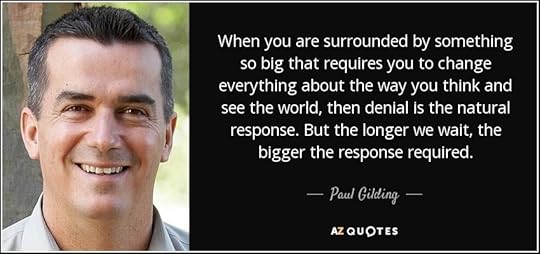
Other Stuff:
Further to the above, I’ve just started reading Riane Eisler’s The Real Wealth of Nations. Very good so far. You may recall I also found her earlier book, The Chalice and the Blade, very insightful.
For another symptom of our environmental impact, I was shocked by this statistic reported in The Guardian: Humans just 0.01% of all life but have destroyed 83% of wild mammals.
In my own life, busy times! Just back from several weeks of traveling, and last Wednesday I was at an alumni dinner in London for the Jackson Institute of Global Affairs at Yale. If you are a city mayor, or know one, I’d like to make a quick plug for a convening of the Global Parliament of Mayors, being convened by Yale World Fellow Marvin Rees, Mayor of Bristol. Mayors have a key role to play in the world right now, so please spread the word!
 On Thursday I delivered a speech at Sports Formal Hall at Lucy Cavendish College, Cambridge. On Friday I was in London to speak to the Asia Europe Political Forum about plastic pollution in the oceans. And of course, on Saturday, it was the wedding of Prince Harry and Meghan Markle in Windsor, where I live. I found it interesting to note that although I have significant reservations about organised religion, inherited wealth, and even marriage, I was as caught up as anybody in the magic of the day, which represented the best of British in every way. Wonderful that the Royal Family is embracing diversity and expanding its gene pool.
On Thursday I delivered a speech at Sports Formal Hall at Lucy Cavendish College, Cambridge. On Friday I was in London to speak to the Asia Europe Political Forum about plastic pollution in the oceans. And of course, on Saturday, it was the wedding of Prince Harry and Meghan Markle in Windsor, where I live. I found it interesting to note that although I have significant reservations about organised religion, inherited wealth, and even marriage, I was as caught up as anybody in the magic of the day, which represented the best of British in every way. Wonderful that the Royal Family is embracing diversity and expanding its gene pool. 
May 17, 2018
Rethinking Money
Is our monetary system failing us? The book I mentioned last week, Rethinking Money: How New Currencies Turn Scarcity into Prosperity, suggests that it is. Here are some statistics:
The combined assets of the family that owns Wal-Mart equal those of America’s bottom 150 million people (out of a population of 325 million). The world’s eight richest people have same wealth as the poorest 50%, according to Oxfam.
Between 1970 and 2010, there were 145 banking crises, 208 monetary crashes, and 72 sovereign debt crises, according to the International Monetary Fund.
80 percent of Americans report that they have zero in savings. This is nearly double the figure in 2007, just before the banking crisis.
The average U.S. college student is more than $25,000 in debt by graduation. According to the Institute of Fiscal Studies in 2017, the average student in England will graduate with debts of over £50,000.
The authors, Bernard Lietaer and Jacqui Dunne, are not condemning money as such. They point out that the emergence of the financial system “produced remarkable advances, thrusting society out of the shackles of superstition and stagnant social order that had preceded it. It brought about the rigour of science founded in that which could be proven, rather than divine dogma. It enabled the individual, no matter how lowly his birth, to scale the heights of his unbridled imagination and keen ambition through learning and labour”.
Rather, they are saying it needs a rethink, and make a very compelling argument.
Here are a few ideas that they offer that you might find thought-provoking. I know I did.
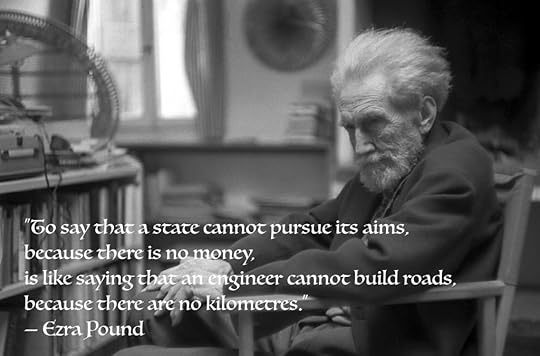 1. They quote economics professor L. Randall Wray, who writes, “In all modern economies the government defines money by choosing what it will accept in the payment of taxes. Once it has required that the citizens must pay taxes in the form of particular money (for example dollars), the citizens must obtain that money to pay taxes. In order to obtain that which is necessary to pay taxes, or money, they offer labour services or produced goods to the government (as well as to markets). This means the government could buy anything that is for sale for dollars merely by issuing dollars.” In other words, a government doesn’t “need” to levy taxes to pay for its expenses. It can simply print more money. Rather, taxes are required in order to give value to money. Money needs to have a degree of scarcity in order to maintain its value, and that scarcity generates competition.
1. They quote economics professor L. Randall Wray, who writes, “In all modern economies the government defines money by choosing what it will accept in the payment of taxes. Once it has required that the citizens must pay taxes in the form of particular money (for example dollars), the citizens must obtain that money to pay taxes. In order to obtain that which is necessary to pay taxes, or money, they offer labour services or produced goods to the government (as well as to markets). This means the government could buy anything that is for sale for dollars merely by issuing dollars.” In other words, a government doesn’t “need” to levy taxes to pay for its expenses. It can simply print more money. Rather, taxes are required in order to give value to money. Money needs to have a degree of scarcity in order to maintain its value, and that scarcity generates competition.
2. Interest charged on loans also depends on scarcity. As Rethinking Money says, “to pay back interest on a loan requires using someone else’s principal. In other words, not creating the money to pay interest is the device used to generate the scarcity necessary for a bank-debt monetary system to function. It forces people to compete with each other for money that was never created, and it penalizes them with bankruptcy, should they not succeed… it’s like a game of musical chairs in that there are never enough seats for everyone. Someone will end up getting squeezed out. There isn’t enough money to pay the interest on all the loans, just like the missing chair.”
3. This manufactured scarcity creates a never-ending push for growth, because borrowers must find additional money to pay back the interest on their debt. “Compound interest implies exponential growth in the long run, something mathematically impossible in a finite world.” And look at the consequences for entire countries of crippling debt: in the 1990s the developing world was spending $13 on debt repayment for every dollar it received in foreign aid and grants. By 2004, that number had grown to $20 on debt repayment for each dollar of foreign aid. Today the ratio is 25:1.3. This drove former President Obasanjo of Nigeria to state: “All that we had borrowed up to 1985 or 1986 was around $5 billion and we have paid back so far about $16 billion. Yet, we are being told that we still owe about $28 billion. That $28 billion came about because of the foreign creditors’ interest rates. If you ask me, ‘What is the worst thing in the world,’ I will say, ‘It is compound interest.’”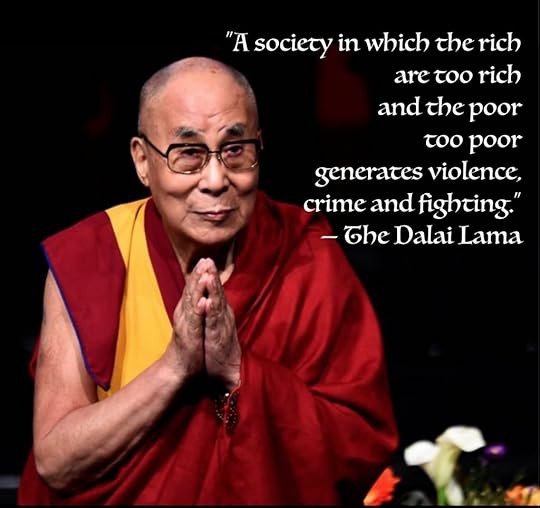
We can see the unintended impacts of this dash for cash on our ecological systems. The financial system promotes short term thinking, while nature conservation requires long term thinking. As interest rates transfer wealth from the have-nots to the haves, the have-nots become ever more desperate, so preserving forests and reefs becomes secondary to their pressing need for money.
At the same time, the competitive nature of money erodes reciprocity and community. Because of its intentional scarcity, it promotes a mindset of domination rather than partnership. In a world where there is never enough, only the fittest survive, with “fittest” meaning those who are best at maximising their own income, at everybody else’s expense.
Lietaer and Dunne are certainly not suggesting that we should get rid of conventional currency, but rather that we need more diversity in our financial systems to improve resilience, increase cooperation and promote long-term thinking. The present financial monoculture is too volatile and vulnerable, and is producing unforeseen and undesirable side-effects. It was a product of its time 300 or so years ago, and for a long time has worked admirably. But the world we live in now is very different, and our economic systems need to change with the times.
We already know the value of diversity in government and in corporate boardrooms. Now there is a strong case for diversity in our economic structures too. Put simply, our currencies need to get current.
“Our money system is structurally brittle. It doesn’t matter if you put a very clever guy or a stupid guy at the wheel. The clever guy will take half an hour to have an accident, and the stupid guy will take ten minutes.”
— Bernard Lietaer
May 10, 2018
Money Makes The World Go Round?
When I give a talk about my adventures, I almost always describe the obituary exercise that I did around 20 years ago that ultimately led to me quitting my job and, via an environmental epiphany, heading off to row across oceans. And often I get someone coming up to me afterwards, sometimes in tears, to say that they are living a life of quiet desperation and would love to be doing something more meaningful…. But they can’t see how to make it work financially.
At the same time, the statistics on employee disengagement are staggering. Around 85% of the world’s work force claims to be either not engaged or actively disengaged. When you run the figures, that is a staggering number of human hours spent watching the clock and waiting for the next pay cheque.
This seems a shame – that there is so much important work that needs to be done to make this a more just and sustainable world, and so many people willing and wanting to do that work, but the money issue gets in the way.
How to resolve this? How do we give people the resources that they need to live, while encouraging them to do work that genuinely makes the world a better place?
For a while I’ve been interested in the idea of a universal basic income, an idea that is gaining traction and being piloted in some countries. (See the Basic Income Earth Network for some good resources on this.)
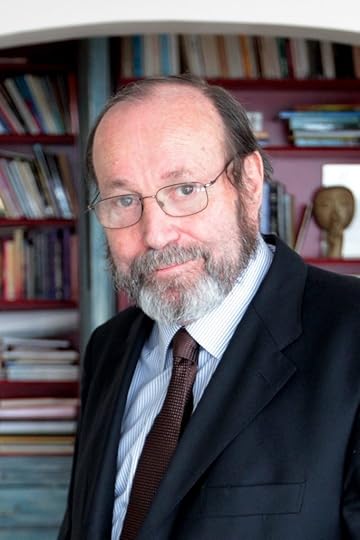 Bernard Lietaer
Bernard LietaerAnd more recently, I’ve become increasingly aware of complementary currencies, which might help to break the deadlock described above. If you haven’t come across the idea of complementary or alternative currencies, this is an excellent article by Bernard Lietaer, who is best known for creating the Euro, but has also invented thousands of alternative currencies to promote particular values within a community.
Another example would be Dashboard.Earth, an app which rewards people with points for taking action on climate change. These points can be redeemed at participating businesses.
We tend to think that money is money is money, a hard fact of life. What I love about these alternative currencies is that they massively expand the potential power of currency. If you feel that our conventional capitalist system, which seeks to maximise profit, is the only option we have, think again. There are other systems, and other currencies, that seek to maximise social good. Dashboard.Earth shows how we can put a tradeable value on good environmental behaviour, but just imagine what it would be like if you could use a currency that rewarded caring for others, or contributing to your community, or actions that promote peace, or love, or compassion.
Ultimately, money is just a human-created tool, a story that we have all bought into in order to facilitate the exchange of goods and services. That story has served us well for many centuries, but is now creating some unintended and undesirable side-effects, especially impacting on our ecosystem.
Because we created the story, we can change it. More and more, we are recognising the value of diversity – on corporate boards, in government, of agricultural crops, of wildlife, and so on. Currency can become more diverse too, and given the power of incentives, has the capacity to powerfully transform human behaviour.
Money certainly does not make the world go round. But it does have the potential to make the world a better place.
May 3, 2018
What Kind Of Intelligent Are You?
It was while I was teaching at Yale last year that I first came across Harvard professor Howard Gardner’s work on the many kinds of intelligence. In ordinary life, we tend to talk about people as being intelligent if they are good at academic things like reading complex books, retaining information, passing exams, performing mathematical calculations, and formulating new ideas. In our society, this is the kind of intelligence that gets rewarded – with good grades, decent salaries, impressive job titles and corner offices.
But this logical-mathematical is far from the only kind of intelligence, as Howard Gardner illuminated. He suggested there are at least eight different kinds of intelligence:
 Linguistic/verbal: naturally good with writing or speaking and memorization (Abraham Lincoln, Winston Churchill)
Linguistic/verbal: naturally good with writing or speaking and memorization (Abraham Lincoln, Winston Churchill)
Logical/mathematical: driven by logic and reasoning (Mr Spock, Albert Einstein)
Visual/spatial: good at remembering images and are aware of surroundings (Picasso, Frank Lloyd Wright)
Intrapersonal: adept at looking inward (Aldous Huxley, Eleanor Roosevelt)
Interpersonal: good with people and thrive in social interactions (Oprah, Gandhi)
Musical: musically gifted and have a “good ear” for rhythm and composition (Mozart, Prince)
Bodily/Kinaesthetic: love movement, have good motor skills and are aware of their bodies (Charlie Chaplin, Michael Jordan)
Naturalistic: sensitivity to and appreciation for nature (Charles Darwin, David Attenborough)
You can find out what kinds of intelligence you have by taking this ultra-quick test.
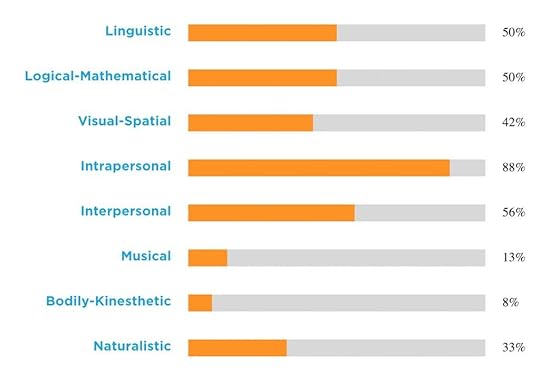 Here are my results. Strong on Intrapersonal (that will be all that reflection and soul-searching that used to happen on the ocean, and that now happens in coffee shops with my journal). Weak on musical (for sure) and bodily-kinaesthetic (matter of opinion).
Here are my results. Strong on Intrapersonal (that will be all that reflection and soul-searching that used to happen on the ocean, and that now happens in coffee shops with my journal). Weak on musical (for sure) and bodily-kinaesthetic (matter of opinion).
Why does this even matter? Howard Gardner says:
Extraordinary individuals are distinguished less by their impressive “raw powers” than by their ability to identify their strengths and then to exploit them.
Too often we try to be good at a kind of intelligence that doesn’t come naturally to us. Because “success” in our educational and economic systems is so heavily skewed towards logical-mathematical intelligence, that’s often what we try to develop. Some will succeed, many won’t.
(Interestingly, it is also a form of intelligence that is traditionally identified as more masculine, while intelligences like linguistic and interpersonal are regarded as more feminine. I’m wondering out loud if the stubborn persistence of the gender pay gap is partly due to the more feminine intelligences being less rewarded in financial terms under the present system.)
But the intelligence I am most interested in is the one that Howard Gardner added only as an afterthought, and even then somewhat tentatively – The Ninth Intelligence: Existential/Spiritual. His provisional definition was “Individuals who exhibit the proclivity to pose and ponder questions about life, death, and ultimate realities”.
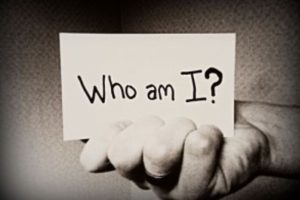 These questions might include things such as:
These questions might include things such as:
Who am I?
What am I here for?
What does it mean to be human?
Where are we going?
Why?
I’d like to suggest that we need to focus on developing this one, collectively and individually, and fast. Fortunately the realms of neuroscience, psychology, behavioural economics, and of course philosophy, are exploding in popularity at the moment. It seems that the time of the Ninth Intelligence has come, and we would do well to not just ponder these questions, but also to find some seriously good answers.
And in case this is all getting too serious, I think this would be a good moment for some (admittedly rather nerdy) existentialist jokes:
Descartes is sitting in a bar, having a drink. The bartender asks him if he would like another. “I think not,” he says and vanishes in a puff of logic.
 The French existentialist Jean-Paul Sartre was sitting in a cafe when a waitress approached him: “Can I get you something to drink, Monsieur Sartre?”
The French existentialist Jean-Paul Sartre was sitting in a cafe when a waitress approached him: “Can I get you something to drink, Monsieur Sartre?”
Sartre replied, “Yes, I’d like a cup of coffee with sugar, but no cream”.
Nodding agreement, the waitress walked off to fill the order and Sartre returned to working. A few minutes later, however, the waitress returned and said, “I’m sorry, Monsieur, we are all out of cream — how about with no milk?
“Is it solipsistic in here, or is it just me?”
“Day 19, I have successfully conditioned my master to smile and write in his book every time I drool.” — Pavlov’s Dog
Boom, boom!
April 26, 2018
The Sisters: Appeal for Awesome Women
I had written a long blog post to announce the formation of The Sisters, which as of last Friday has now been officially incorporated in the UK. But I’ve decided to keep it under my hat for a bit longer, as I’ll be discussing it during a weekend-long retreat with some friends in mid-May, and subjecting it to a kicking, sorry, feedback session, with a business accelerator at the end of the month. So I didn’t feel quite ready to hit the publish button on that yet.
For now, I’d like to enlist your help. I’m looking for bold, inspiring women who are making the world a better place in some way. They might be in politics, or business, or the non-profit sector, or none of the above. They might be working solo, or galvanising a community, or leading an entire country. They might be operating in the realm of spirituality, or health, or family, or personal growth, or anything else.
Essentially, they must be:
– Doing something positive – this is less about fixing problems or supporting unfortunates, and more about forging a positive future for all
– Likely to agree to write an article of 500-750 words for an online magazine
– Directly known by you, so that you would be willing to make an introduction. Please don’t tell me I should be asking Malala, unless you have her email address. And if you do, please share!
Feel free to reply in whatever way works best for you. If you’re reading this in the newsletter, hit reply. If you’re reading it on the website, post a comment or use the contact form.
Thanks in advance for any great ideas!
If you would like to be kept informed about the upcoming launch of The Sisters, please sign up for this mailing list. And do encourage your female friends and family to sign up too. You’re not committing to anything, and I won’t be spamming you – it’s just the easiest way for me to keep you posted.
April 19, 2018
Quotations to Change the (your) World
This week, a smorgasbord of quotations that I hope will provoke, intrigue, captivate and transform. More of my favourite books listed here. Enjoy!
“When we strive to become better than we are, everything around us becomes better, too.”
Paulo Coelho – The Alchemist
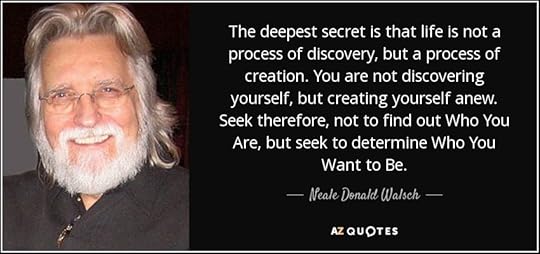 “If you want the best the world has to offer, offer the world your best.”
“If you want the best the world has to offer, offer the world your best.”
Neale Donald Walsch – Conversations With God
“Loving and energizing others is the best possible thing we can do for ourselves.”
James Redfield – The Celestine Prophecy
“The place to improve the world is first in one’s own heart and head and hands, and then work outward from there.”
Robert M. Pirsig – Zen and the Art of Motorcycle Maintenance: An Inquiry Into Values
“There’s nothing fundamentally wrong with people. Given a story to enact that puts them in accord with the world, they will live in accord with the world. But given a story to enact that puts them at odds with the world, as yours does, they will live at odds with the world… The premise of the Taker story is ‘the world belongs to man’… The premise of the Leaver story is ‘man belongs to the world’.”
Daniel Quinn – Ishmael: An Adventure of the Mind and Spirit
“This was now a world where, having violently deprived the Goddess and the female half of humanity of all power, gods and men of war ruled. It was a world in which the Blade, and not the Chalice, would henceforth be supreme, a world in which peace and harmony would be found only in the myths and legends of a long lost past.”
Riane Eisler – The Chalice and the Blade: Our History, Our Future
“And so we see people who are spiritually disconnected, living in boxes and driving in boxes, perhaps once a year going “out to nature” to get a small touch of what was once the daily experience of humans. These people seek escape. They sit in urban and suburban homes and feel miserable, not knowing why, experiencing anxiety and fear and pain that cannot be softened by drugs or TV or therapy because they are afflicted with a sickness of the soul, not of the mind.”
Thom Hartmann – The Last Hours of Ancient Sunlight: The Fate of the World and What We Can Do Before It’s Too Late
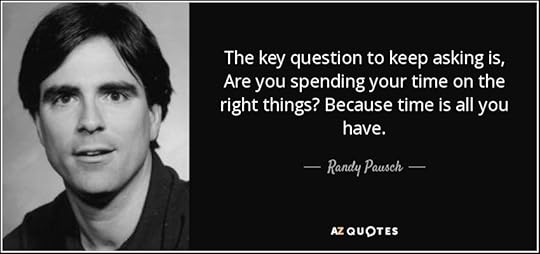 “Complaining does not work as a strategy. We all have finite time and energy. Any time we spend whining is unlikely to help us achieve our goals. And it won’t make us happier.”
“Complaining does not work as a strategy. We all have finite time and energy. Any time we spend whining is unlikely to help us achieve our goals. And it won’t make us happier.”
Randy Pausch – The Last Lecture
“I have always believed, and I still believe, that whatever good or bad fortune may come our way we can always give it meaning and transform it into something of value.”
Hermann Hesse – Siddhartha
“It is only when we have renounced our preoccupation with “I,” “me,” “mine,” that we can truly possess the world in which we live. Everything, provided that we regard nothing as property. And not only is everything ours; it is also everybody else’s.”
Aldous Huxley – The Perennial Philosophy
“In some ways suffering ceases to be suffering at the moment it finds a meaning.”
Viktor Frankl – Man’s Search for Meaning
“Don’t believe what your eyes are telling you. All they show is limitation. Look with your understanding. Find out what you already know and you will see the way to fly.”
Richard Bach – Jonathan Livingston Seagull
Other Stuff:
Now back from my trip to Arran, and full steam ahead with creating The Sisters, a truly diverse global community of women working together to create the urgent and radical transformation that we need in the world. Exciting times!
Intrigued to hear on BBC Radio 4 this morning that famously leftie musician Billy Bragg is off to speak at the Bank of England today. His day got off to a lively start, with an animated debate with an arch-capitalist as to how society can be best served – regulation and redistribution, or the invisible hand unfettered? I’m off into the City tomorrow for my own speaking gig at the Sell-Side Technology Awards, just around the corner from where I used to work at UBS. Back into the belly of the beast…
April 12, 2018
Humans Today, Gone Tomorrow
This week I took a road trip with my mother (79 years young) to the island of Arran, off the west coast of Scotland. One characteristically rainy Scottish day, we found ourselves in the Heritage Museum in Brodick. Amidst various fun things including a nineteenth century cottage, a smithy, and a bathing shed, there is a small but very good geology exhibit.
I wouldn’t have ranked geology particularly highly in my list of interests (with apologies to all keen geologists – not saying it isn’t fascinating, just that there is a limit to how many subjects a person can be passionate about), but there, in a tiny strip at waist height, below images of a 3-metre (10-foot) lizard whose fossilised footprints were found on Arran, and a 1-metre (3-foot) millipede, with legs 10cm (4 inches) long (yuck!), there was a series of tiny images that really caught my eye, portraying the movement of the world’s continents over the last several billion years.
I’d vaguely heard of Gondwana and Pangaea, but hadn’t really appreciated that these were just two in a long series of supercontinents that broke up, drifted apart, and reassembled over the Earth’s lifespan of around 4.543 billion years. (As the exhibit said, that’s even older than your granny and grandpa.)
Check out this really cool video of the last 3.3 billion years of tectonic shift. (If you don’t have 3.3 billion years to spare, fear not – it‘s not in real time. Takes less than 5 minutes.)
According to Wikipedia, humans have been around for about 315,000 years. Please correct me if I’m wrong (and what are a few zeroes between friends?), but I think that means humans have been around for about 0.00693374422 percent of the lifespan of Planet Earth.
Or, to put it more graphically, I’ll borrow anthropologist Louise Leakey’s image of the history of Earth being like a roll of toilet paper.
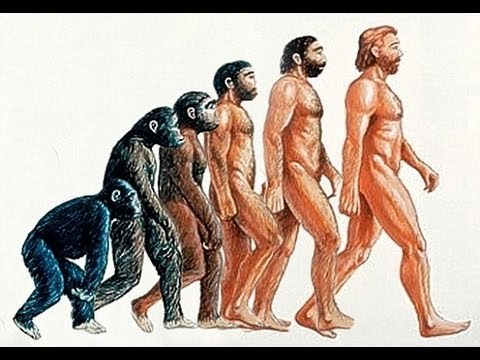 If there are 400 sheets of tissue paper in the roll, then the very first life in the oceans is seen at sheet 240. The age of the dinosaurs begins 19 sheets from the end. Dinosaurs in their many forms and great diversity are around for 14 and a half sheets. Dinosaurs are extinct by the end of the Cretaceous, 5 squares from the end, making way for the mammals.
If there are 400 sheets of tissue paper in the roll, then the very first life in the oceans is seen at sheet 240. The age of the dinosaurs begins 19 sheets from the end. Dinosaurs in their many forms and great diversity are around for 14 and a half sheets. Dinosaurs are extinct by the end of the Cretaceous, 5 squares from the end, making way for the mammals.
Our story and place on the timeline as upright walking apes begins only in the last half of the very last sheet. The human story as Homo sapiens is represented by less than 2 millimeters of this, some 200,000 years.
So there we are. Homo Sapiens constitute the last 2mm, or less than 0.01 inch, of the global roll of toilet paper.
Not very much to wipe with.
We are very much the planetary Johnny/Joanna-Come-Latelies, but already we’ve dominated, exploited, and polluted the land, air and sea. Even in my lifetime, the human population has more than doubled, and in a closed-loop system, that means that there is less space, food, and other resources for the other species with whom we share the Earth.
So, depending on your worldview, different people will take this in different ways. Some might say that species come, species go (thank heavens the 1-metre millipedes are gone), so we shouldn’t worry that, according to WWF, extinction is currently running at between 1,000 and 10,000 times the natural extinction rate. Hey, it’s a jungle out there, survival of the fittest, etc etc.
But what if humans become one of those species that goes extinct?
Well, that may be fine for some, and of course I accept it will happen sooner or later. Personally, I would prefer it to be later. Even though I have those days (don’t we all?) when we’re less than impressed with the human animal, the fact remains that most of my best friends are humans, and I would like to see us be around for quite some time to come. We have so much potential, and we’re barely out of our collective adolescence. We have so much more we could do – if we have the intelligence and foresight to live up to the “sapiens” part of homo sapiens.
Sapiens, of course, means “wise”.
Are we? And even if we’re not acting wise now, can we?
Time will tell. And the Earth has all the time in the world. We may not.
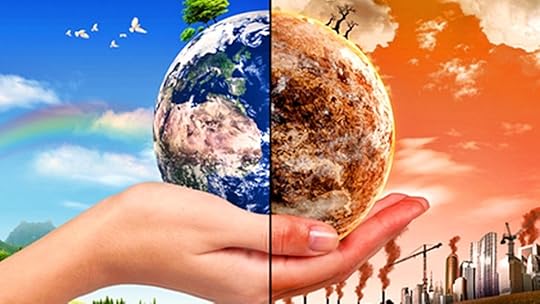
April 5, 2018
Of Women and Words
I am fortunate to have an amazing circle of female friends, and to count among their number the wonderful thought-leader and neuroscience nerd, Ellen Petry Leanse. Some of us were recently having a conversation about the future of women, and another friend, ocean rower and speaker Sally Kettle, raised the subject of the language we, as women, use about ourselves. This brought forth a stream of thoughts from Ellen that was so good that I asked her permission to share it with you here.
I hope that you all – men and women alike – enjoy this. Thank you, Ellen!
Ellen writes:
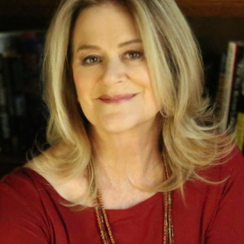 Hello wonderful sources of life and strength,
Hello wonderful sources of life and strength,
I am so glad to read that Sally brought up something about the language women use to talk about themselves. It’s one of the things I think most about – along with the conditioning that brings it about.
My belief is that women are conditioned from the time we are very small to “prove, please, pretend, and protect.” These are the behaviors we’re taught to use to “make ourselves worthy” in societies that both consciously or unconsciously teach us that we are “lesser than” certain other members of those societies.
At the core of our thoughts as women is the unseen belief that we need to be cared for and protected by other people – men – who are here to keep us safe: to defend us and our virtue by both their actions and by the underlying rules that shape our lives.
I said at the core of our “thoughts” ….and thoughts are one thing. But at the core of our BEINGS, in our hearts, in our souls, and epigenetically in our cells, we know this isn’t true: we are full equals. We are ALL full equals; no one is dominant or superior to the other by anything but a mental construct. And mental constructs are stories: fabrications made by one source and shared with others. Stories can be changed.
This conditioning is so pervasive we’ve perhaps come to think this is how we “are.” I am not convinced. Yes, we can track certain anatomical and organizational differences between female and male brains. I’m comfortable with that and if these things are true I am especially proud that my brain is female. However, my belief is that the brain is the ultimate “recording” machine, constantly seeking and taking in information from the world around us and converting it into a construct of the environment around us and what we need to “be” and do in order to survive in it. From the time we are small we, all of us, record messages from the environment around us that teach us “this is how you need to be you”…this is a survival mechanism that allows cultures to sustain themselves, and that gets individuals within it to play by the rules of those cultures. But every light has a shadow (and every shadow a light…). The rules we have been conditioned to the mental constructs of a specific time in human history where we shifted from a life a true partnership – between genders, between the known and the unknown, between the concept of the individual and that of the collective, between matter and mystery – and into a world view where ambiguity could be conquered through what all boils down to patriarchy: the ruling by “fathers” looking after us all.
We have no evidence that this is how humans are “supposed” to be. In fact we have considerable evidence to the contrary, gleaned from the archeological record, as Roz references in this wonderful read, from the beliefs and lifestyles of intact hunter-gatherer societies who have sustained themselves for tens of thousands of years, from the behavior of high primate and other mammalian life forms.
One thing that thrills me about The Sisters, and our contribution to it, is the chance to rewrite the narrative about who women are and how we and men interact together. The change begins here, with us, and with the way we create a new way to hold our power as equals with each other in our actions, language, and beliefs.
There’s a saying attributed to Lao Tse that is with me…well, constantly, since the first line of it is permanently marked on my left wrist:
Look to your thoughts
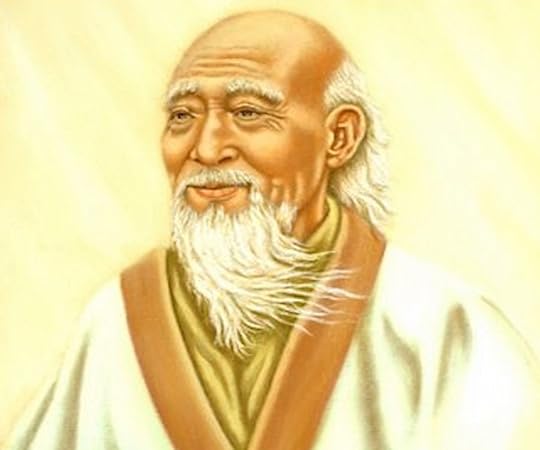
For thoughts become words.
Look to your words
For words become actions.
Look to your actions
For actions become habits.
Habits shape character
And character shapes destiny.
Thoughts are internal and often unseen.
Words are external, and thus heard. Looking to them, we can “see” our thoughts.
When we women speak of ourselves in the conditioned language of proving, pleasing, pretending, or protecting – or in other roles we’ve been taught “are” us – we can reverse engineer our way into the thoughts that underly our words, and see that these thoughts reflect what our hearts, bodies, and beings know is untrue.
We are not lesser than anyone. And, equally, no one is lesser than us.
I believe THIS is the most important change we can make as a species today: changing the myth that ever suggested anything else.
It begins with us and with our language. The language of equals is kind, encouraging, expansive, reflective (not reactive), and sustainable. That reflects thoughts and leads all the way through to our destiny.
What a beautiful invitation we have as sisters, and Sisters, to begin this new conversation together.
Thank you for the opportunity to reflect and let these thoughts coalesce in your honor. I hope you find them of use and even value.
With love,
Ellen
About Ellen:
Ellen Petry Leanse is a Silicon Valley pioneer – an alum of Apple and Google and a wide range of entrepreneurial journeys – who now teaches at Stanford, coaches leaders on creating impact, and writes and speaks on neuroscience, gender, and life purpose. Her best-selling book, The Happiness Hack, shares both the neuroscience and the timeless wisdom that guide intentional living and the path to satisfaction. Follow her on Twitter at @chep2m. If you want more Ellen, here she is speaking at TEDxBerkeley. And speaking with Megyn Kelly on the Today Show about The Happiness Hack.
Other Stuff:
I’m away in Scotland this week with my mother. So am doubly grateful to Ellen for letting me share her thoughts, as it means I have more time to spend with Mum!



